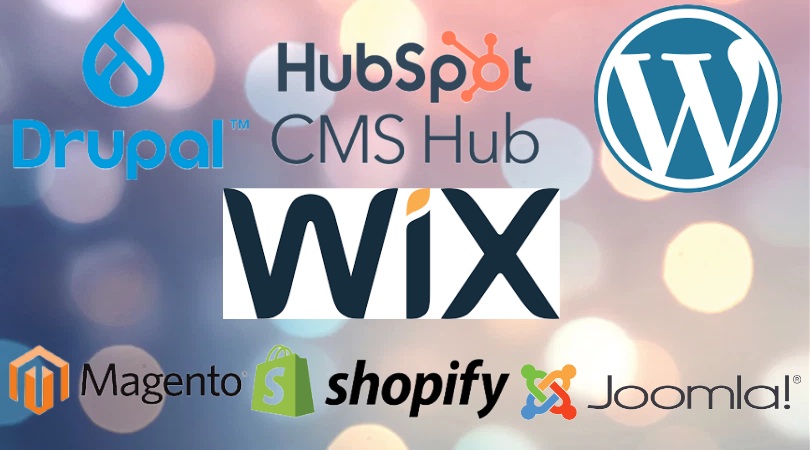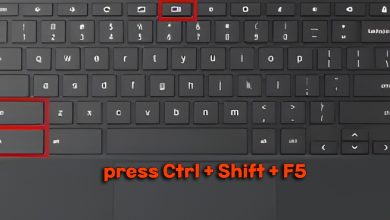Are you seeking the best CMS (content management system) for your business? If you answered yes, then you won’t want to miss this post. A CMS allows you to quickly and easily include a wide variety of web content. If your website has many contributors, you should probably use the content management system (CMS) that provides the smoothest workflow.
CMS platforms typically have user interfaces that are uncomplicated and uncluttered, which makes it much simpler to use the application.
Both the tech and non-tech communities have found great success using CMS. Market research predicts that by 2026, the content management system industry will be worth $123 billion. You’ll find n It’s not hard to find a content management system to use.
However, things will get more complicated if you try to build your website on the wrong content management system. And figuring out which content management system is ideal for your purposes can be a little tricky. This post will discuss some of the best content management system (CMS) options, making it simpler to select the right one for your next project.
Let’s get started.
What is a CMS Platform?
A content management system platform, sometimes known as a CMS platform, is software that makes it simple to build websites and manage their information. HTML, JavaScript, and Cascading Style Sheets are the typical programming languages used to create web pages. If you wanted to develop a website without using a content management system (CMS), you would need to become fluent in these languages and write a significant amount of code.
CMS platforms are the solution to this issue since they enable users to create websites without writing code or learning how to program. Unless you’re looking for a content management system (CMS) that’s favorable to developers, indicating that you already know how to code.
Best Content Management Systems 2022:
1. WordPress
WordPress is a free and open content nagement system (maCMS) that is simple to implement. It uses a database management system (DBMS) named MySQL or MariaDB and is developed in PHP. Furthermore, it has a flexible plugin architecture and a robust template system, making it easy to tailor to your specific needs.
Themes are pre-designed skins that can be used to instantly update a website’s look and feel, as well as put in brand-new features. Thanks to WordPress’s rapid rise in popularity, you can now create a stunning website for your startup or nonprofit.
WordPress’s most vital point is how easy it is to set up and administer. You can easily make changes to your website using the tools provided by WordPress. Since it is user-friendly, you can get started with it even if you don’t know much about programming.
2. HubSpot CMS
You need a custom-built website that takes advantage of HubSpot CRM’s features and flexibility if you want to get the most out of your online efforts. HubSpot’s user-friendly content management system makes it possible to launch a website with no coding experience in less than 5 minutes.
If you’re having trouble keeping track of your contacts, data, and social media accounts, use this handy tool. Additionally, it will make your website easier to navigate. All kinds of external programs can communicate with CMS Hub. A large number of other programs are compatible with CMS Hub.
3. Wix
Wix was launched in 2006 as a web-based website builder. Wix is a website hosting service that lets you create an HTML5 or mobile site using simple drag-and-drop tools. Unlike other web app development platforms, Wix does not require users to have any coding experience.
You need a Wix license to use your own custom domain name. Thanks to its intuitive user interface, you can create beautiful websites in no time. You may make your website seem precisely how you want it to with the help of the scaler, aligner, and formatters. Wix also provides a toolbar that lets users drag and drop elements into their webpage.
4. Joomla
If you’re a professional seeking a free, open-source content management system (CMS) with much room for customization and add-ons, you can consider Joomla. However, you will need to pay for hosting and a domain name to use it. If you need to construct something highly distinctive and complex, Joomla development is an excellent choice for you as it has an extensive library of templates and add-ons.
You can change your content without learning new skills if you don’t want to use code. With the help of its add-ons, Joomla can also be used to create and manage an online shop. Because it is open-source and welcomes user contributions, a sizable user base can help you out if you run into any problems when working with the content management system.
5. Drupal
Another popular choice among developers is Drupal. It’s a free and flexible content management system (CMS) that can be used to create complex websites with extensive databases. When it comes to Drupal development there are various modules available for you to use to tailor the functionality of your site. Drupal is an excellent platform for building a site that can be tailored to the specific needs of its visitors.
Using the CMS to analyze data like geolocation, browsing history, and device type, you can get a fuller picture of who they are and what they want. This will allow you to show specific examples from your case studies, goods you think the client would like, or marketing messages that are relevant to them. Regarding content management systems, Drupal is the safest and most reliable option. Drupal also includes a robust community code review process and strong coding standards.
6. Shopify
It’s a hosted content management system (CMS) that includes everything you need to launch an e-commerce site. Shopify is another CMS with an intuitive drag-and-drop interface that makes it simple to get up and run.
Shopify takes care of the technical details, so you won’t have to worry about hosting, software upgrades and backups, or installing the program. Its library of visual templates and themes will help you find branding ideas with examples ranging from coffee shops to rug shops.
Shopify also allows you to connect your online store with various valuable apps and services. Integrate Shopify with your email marketing, conversion, and payment platforms. Shopify Payments, an integral part of Shopify, allows you to take credit and debit cards. One of Shopify’s built-in payment options is PayPal. If you also have a physical storefront, you’ll appreciate the in-store sales help.
7. Magento
Magento is an e-commerce platform that offers online retailers a customizable shopping cart system, and it is based on open-source technology. In addition, it is a leader among the best content management systems for online stores. Magento is one of the leading content management systems (CMS) designed specifically for online retailers. It’s one of the most popular choices for small businesses because it’s so simple to implement.
Plus, it provides practical marketing, SEO, and catalog management tools. As a bonus, it offers sophisticated reporting capabilities and facilitates more organized order management. There are no hidden fees when you sign up for Magento. You can sign up for free, and then, if you ever need more storage space or services, you can upgrade anytime.
In a Nutshell
If you want a professional-looking website without effort, consider adopting one of the excellent content management systems we’ve already mentioned. Realistically, you won’t be able to become an expert in all of them, but if you focus on mastering a select number, you may find yourself in a stronger position than your peers.
However, if you are not technically strong enough to understand content management systems (CMS), you should opt for CMS development services from professionals. They will work to help you choose the one that suits your all business needs.
Visit for more best articles












